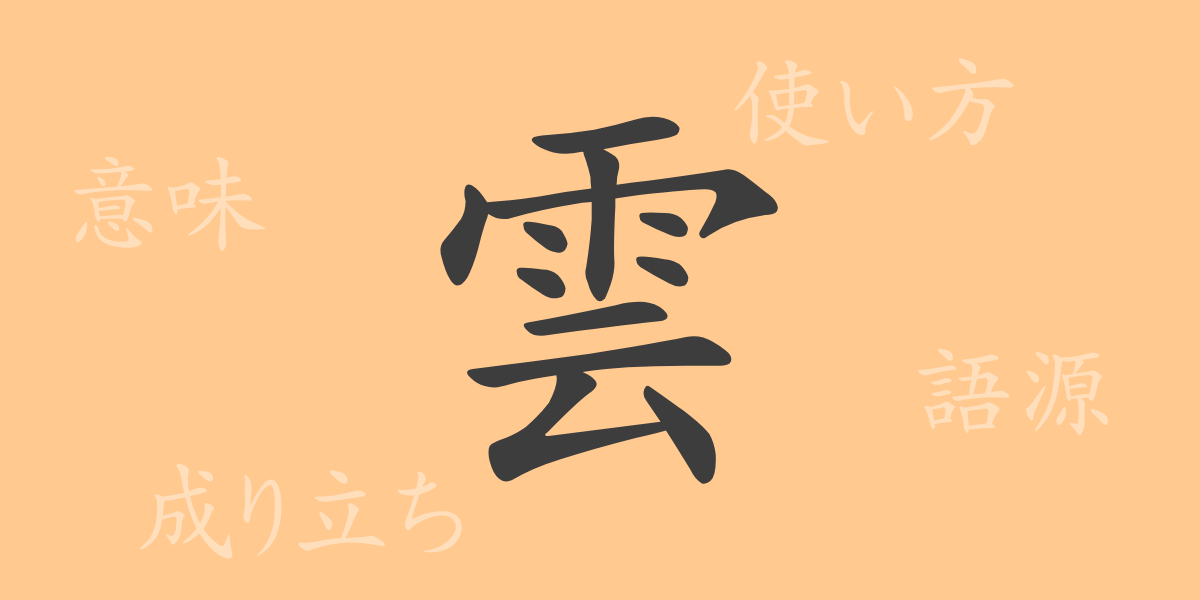“
When we look up at the sky, we always see the ever-changing shapes of clouds. Clouds quietly accompany our daily lives, sometimes signaling changes in the weather, and are also expressed with various meanings in the world of literature and expression. In this article, we focus on the Japanese common kanji “”雲”” ( Kumo), delving into its origin, meaning, usage, reading, stroke count, radical, and even compound words, idioms, and proverbs using “”雲””.
The Origin of 雲 ( Kumo)
The kanji “”雲”” was born in ancient China as a character representing a mass of water vapor floating in the sky. From the way the shape of clouds constantly changes, it also came to be used as an expression symbolizing fluid and uncertain things. This kanji was also transmitted to Japan and became used within Japan’s unique culture and language.
The Meaning and Usage of 雲 ( Kumo)
The kanji “”雲”” refers to a collection of water vapor floating in the sky. However, “”雲”” is also used in a metaphorical sense. For example, the expression “”雲の上の人”” ( Kumo- no -ue -no- hito) can refer to a person in a position so high or far away that they are out of reach. Also, the phrase “”雲をつかむよう”” (Kumo -wo -tsukamuyou) can express the act of pursuing an impossible dream or wish.
Reading, Stroke Count, and Radical of 雲 (Kumo)
How is the kanji “”雲”” read in Japanese, and what elements does it consist of?
- Reading: The on’yomi reading is “”ウン”” (Un), and the kun’yomi reading is “”くも”” (Kumo).
- Stroke Count: 12 strokes in total.
- Radical: 雨部 ( Amehen), the “”rain”” radical.
Compound Words, Idioms, and Proverbs Using 雲 (Kumo) and Their Meanings
There are numerous compound words, idioms, and proverbs containing “”雲””, each with its own unique meaning and background. For example, “”雲散霧消”” (Unsanmushou) describes the way things disappear without a trace, like clouds and mist vanishing. Also, the expression “”頭上の霧が晴れる”” (Toujou- no -kiri- ga -ha-reru) portrays the moment when confusion or anxiety is resolved, and things become clear. These expressions demonstrate the rich expressive power of the Japanese language.
Conclusion on 雲 (Kumo)
The kanji “”雲”” is widely used in Japanese as a character symbolizing the fluidity and uncertainty that its shape and existence represent. Through this article, we hope that you have been able to feel the multifaceted charm of “”雲””, from its origin and meaning to compound words and idioms. As a common kanji in Japanese, “”雲”” stimulates our imagination through language and enables rich expression.
“

























